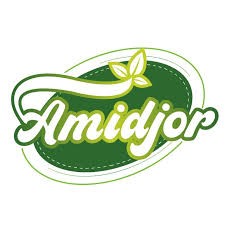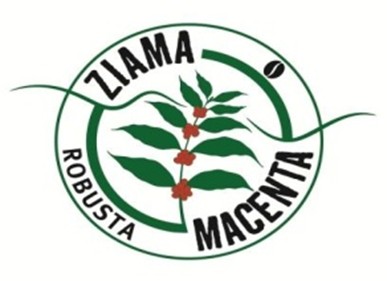Amidjor is a company specialized in agri-food production, processing, and training.

Jolenta acquired a BSc in Human Nutrition from the Sokoine University of Agriculture, Tanzania. She joined the Sokoine University Graduate Entrepreneurs Cooperative (SUGECO) in 2016 and worked on a the Building Nutritious Food Baskets (BNFB) project led by the International Potato Centre (CIP). This nutrition awareness project mainly focused on how to use orange-fleshed sweet potato (OFSP) purée to make different bakery products and achieved excellent results, for example reducing production costs by 45%.
Jolenta set up Sanavita to support her country’s fight against hunger through agribusiness engagements and processing of underutilised crops. She has won two international awards, the 2020 Sun Pitch Competition Food Technology Innovation Prize given by the Global Alliance for Improved Nutrition (GAIN), and the mentorship prize granted by AGREA, a social enterprise working on sustainable farming and based in the Philippines. She also won the 2018 “Malkia wa Nguvu” prize in the Agribusiness category which awards visionary women who inspire and build opportunities for their families and communities.
Type: Limited Liability Company
Year of Foundation: 2017
Number of Employees: 18, 80% of whom are women
CEO: Jolenta Joseph
Business Model
The goal of Sanavita is to address the high rates of malnutrition in Tanzania: 44.7% of the country’s women at reproductive age suffer from anaemia and 33% of children under the age of six are deficient in vitamin A. Sanavita aims to become a leading company in health and nutrition, through engagement with smallholder farmers, education and the development of nutritious products using staple crops.
Jolenta was aware of the wide-scale production of OFSP in her country, a nutritious crop with a fast rate of maturation and one less susceptible to pests and diseases. She noted that smallholder farmers, having turned to this crop from maize production, were finding the markets had become saturated and they were unable to make a profit from the produce. Although 90% of people in rural areas are known to grow and use OFSP, they have been struggling to reach viable markets.
Sanavita was established to form a link between smallholder producers and the markets by adding value to the crops through a range of biofortified products. Jolenta’s connection with SUGECO allowed the company to make use of milling machines and university laboratory services at a subsidised rate. The Sanavita team analysed OFSP to study its nutritional benefits: potatoes dried in the sun lose 80% of their beta-carotene; those dried in solar dryers lose just 20%. Beta-carotene is a precursor to provitamin A, essential to human nutrition, especially in children. The solar dryers also increase the shelf life of OFSP by up to six months. The laboratory enables the company to achieve an optimum nutrient composition in products and ensure food safety standards are met.
Strong Relationships with Smallholders
Sanavita supports over 1,500 smallholder farmers producing maize rich in provitamin A and beans high in iron and zinc, as well as OFSP tubers. In buying the produce from these farmers and converting it into nutritious food products, Sanavita offers a reliable link to ready markets.
The company manages a cooperative site through SUGECO that is used by several farmers for seed multiplication. Fresh plants have been provided for this purpose by the Tanzania Agricultural Research Institute. The farmers rent land at an affordable price and can generate produce for their own use, selling the excess to Sanavita for processing.
Sanavita is improving the livelihoods of rural communities and supporting women to escape poverty through engagement in agriculture. It delivers training in good farming and management practices and offer consultation on a range of issues, including: nutrition for special groups (community risk); nutrition for children under six years; malnutrition intervention; and production and quality of biofortified crops.
Products and Markets
Sanavita’s affordable and accessible market-ready products include the following:
• Pure OFSP flour;
• Composite flour from OFSP, sorghum and soya;
• Composite flour from OFSP, rice and pumpkin seeds;
• Flour from pro vitamin A maize and cassava;
• Flour from high iron and zinc beans;
• Biscuits from high iron and zinc beans and OFSP.
The composite flours are rich in beta-carotene and other added nutrients and can be used to make a healthy porridge, containing more micronutrients than porridge made from cereals. Maize flour is used in Tanzania to make a traditional stiff porridge, consumed widely in afternoon and evening meals. The use of provitamin A maize gives this product enhanced nutritional value.
The products are all organic with no chemical additives. The processing techniques used and careful moisture control result in products with a long durability in markets. The products are aimed at vulnerable people (children under the age of six, pregnant women, lactating mothers) and low-income families in midtown and town areas of Tanzania, where people may not have access to fresh produce of these staple crops. Sanavita products are sold in supermarkets, local shops and local markets in these areas.
Innovations: Milestones and Expansion Plans
Sanavita began on a small scale with a supply of 200 kg of fresh OFSP per week. The company has since bought new processing equipment and they now deal with 3 tonnes of the crop each week and have added other crops including provitamin A maize and high iron and zinc beans to create a range of products, expanding their customer base as a result.
The new equipment includes an electric chopping machine which can cut 700 kg of OFSP tubers per hour into small pieces before they are dried and milled into nutritious flour. With a new bag-sealing machine, the company can package its flours in different volumes for a wider range of customers. The purchase of metal tanks for storing grain has overcome the problem of insect infestation (weevils, grain borers, moths) and provided critical storage capacity.
Sanavita has started to include identification barcodes on its products, allowing access to larger supermarkets. The company is in the process of acquiring marks of quality from the Tanzania Bureau of Standards that will also enable a link to large retail stores and provide access to export markets.
Adopting a model of “proximate processing”, Sanavita adds value to local crops closer to the point of production, to reduce postharvest loss or wastage of perishable nutritious foods. Solar drying technology is the innovation that makes this possible, reducing processing costs and decreasing the environmental impacts of agricultural production.
Success Factors and Lessons Learned
In collaboration with the Tanzania Food and Nutrition Centre and with district health departments, Sanavita delivers awareness raising campaigns and nutrition education for key players in food provision such as school staff, health care facility workers and religious leaders. Training is provided on: value addition and food processing (product development); maternal and child nutrition; making baby foods; and nutrition sensitive agriculture. Some of the crops supported by Sanavita are relatively new to some people and they may not be cognisant of the nutritional benefits of this produce. By enabling these key players to become ambassadors for the crops and the resulting product portfolio, Sanavita hopes to improve food practices within communities, making sure the right nutrition is reaching those most in need of its assets. Through these activities as well as campaigns on local radio, television channels and social media, the company has reached an estimated 20,000 community members.
Sanavita won the Food Technology Innovation Prize at the 2020 SUN Pitch Competition, awarded by the Global Alliance for Improved Nutrition (GAIN) for developing technology to create nutritious and affordable food solutions. GAIN continue to support Sanavita by providing technical assistance, building the company’s capacity to produce higher volumes more efficiently. For showing innovation, creativity, value addition and impact, Jolenta also received a mentorship prize from AGREA.
The intensive training on business and financial management and networking that Jolenta received through her participation in the SUN Pitch Competition in 2020, have enabled her to understand the business from a global perspective. Realising her previous focus had been predominantly local, the training gave her ideas on gaps in the market that the company could address, not only in Morogoro but across Tanzania, and maybe the entire East African region. The company recognises that there are many other products that can be produced with biofortified crops to supply different categories of consumers.
The AGREA mentorship will help the company in expanding and establishing their own production facility separate from the SUGECO site. The cash prize from GAIN of US$10,000 for the SUN Pitch Competition has supported Sanavita’s business needs and made this development possible. A further grant through GAIN’s Keep Food Markets Working programme during the COVID-19 pandemic has covered operational costs and allowed Jolenta to continue paying staff salaries.
Jolenta finds these awards have not only boosted her business and informed her plans for expansion, but also enable her to interact with other like-minded entrepreneurs in countries across Africa and Asia.
Additional Resources
Join our Forum to discuss and explore how to encourage innovations across agricultural value chains to transform food systems in African, Caribbean and Pacific countries and beyond, promote sustainable agriculture & leverage investments. Share insights, ask questions, and collaborate on innovative solutions for a greener future.
Recent Business Profiles

Amidjor is a company specialized in agri-food production, processing, and training.

ADECAM is a community-driven organisation in Guinea dedicated to protecting, promoting, and developing the Ziama-Macenta Geographical Indication coffee, while supporting smallholder producers...

Tac Maz Sustainable Ventures is a climate-smart social enterprise in Malawi supporting smallholder farmers through sustainable poultry and horticulture production.

Bono Salus is a Zimbabwean woman-led agribusiness specializing in urban hydroponic farming of microgreens.

The Nut Place is a Nigerian food innovation company that processes locally grown edible nuts into gluten-free, nutrient-dense products to improve nutrition, reduce post-harvest losses, and promote...